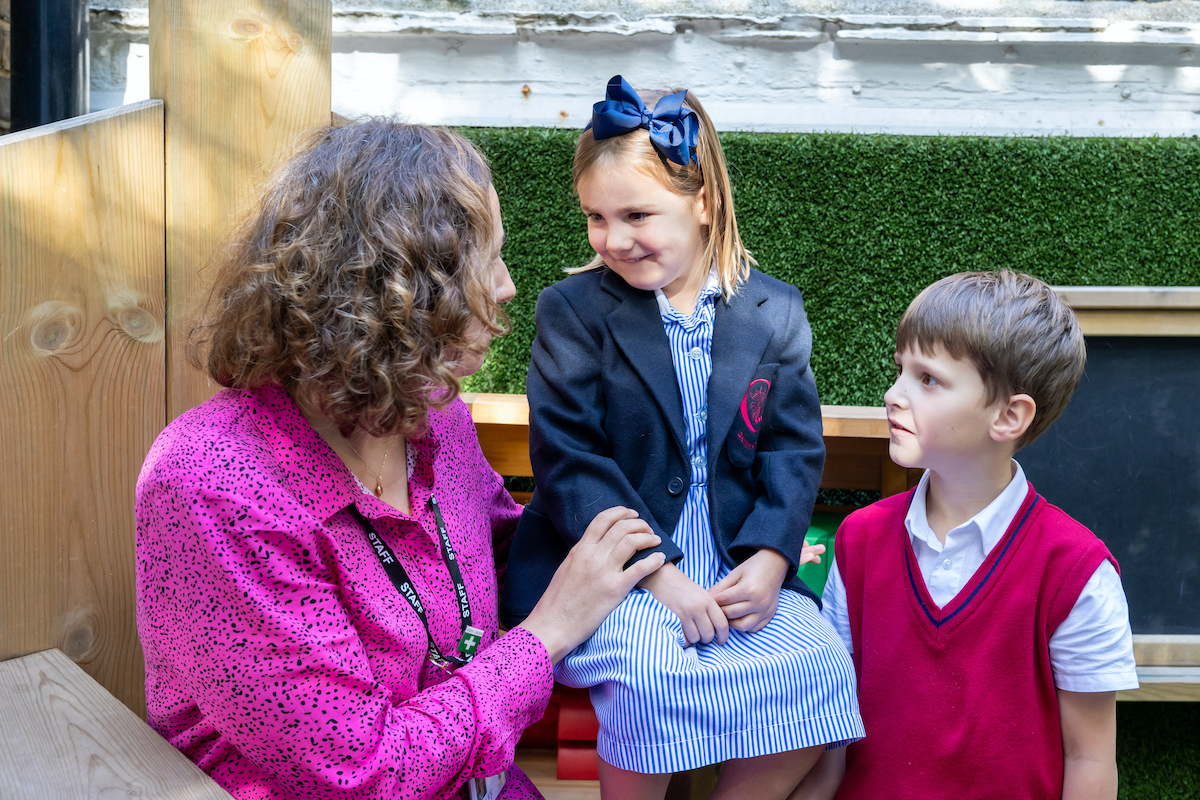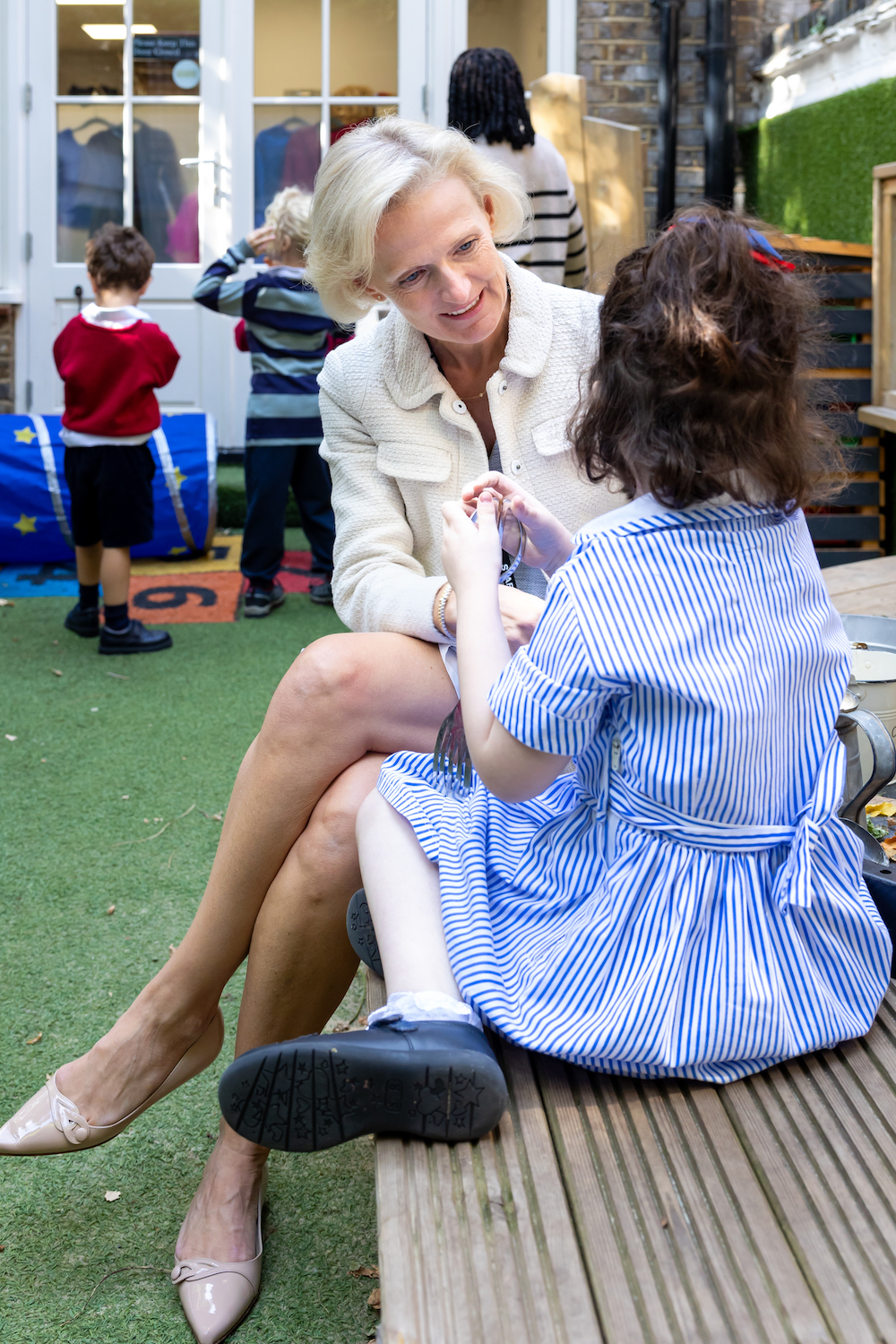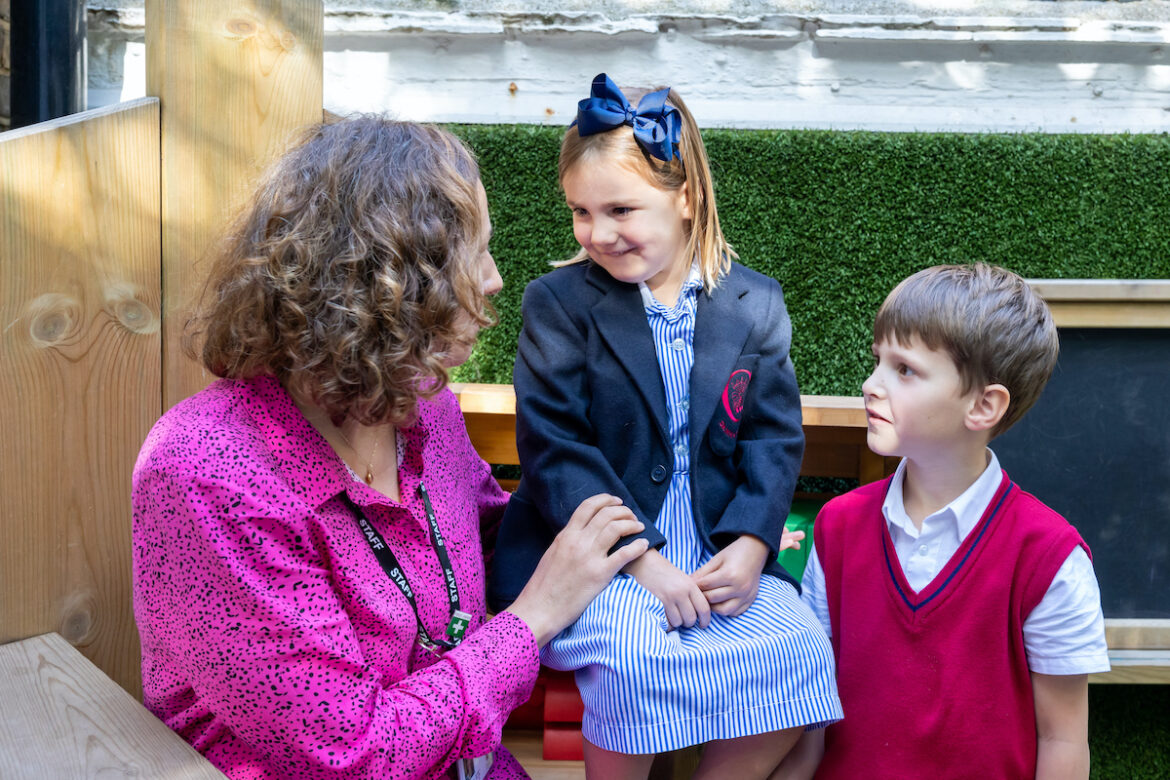
Sponsored Content
The Crucial Role of Communication and Family Mealtimes in Child Development or No More iPads at the Dinner Table!
In an era marked by technological advancements and fast-paced lifestyles, family mealtimes have taken on a new dimension. Many parents have turned to iPads and other devices as a means to keep their children occupied during meals. However, this trend, while seemingly convenient, will have a detrimental effect on children’s development. In stark contrast, French families hold a deep-rooted tradition of cherishing family mealtimes, emphasizing the importance of communication, which can significantly impact a child’s long-term mental health and capacity for open conversations. Mrs Alison Melrose, Headmistress of Cameron Vale School is known by all the children at the school for valuing mealtimes and good table manners. Her recent half-term trip to stay in a small hotel in the sunshine for some rest and recuperation after the busy start to the school year reinforced her concerns over the negative impact of iPad parenting.
‘With three different half-terms between my sons’ schools and mine, my husband and I took advantage and had a few days away by ourselves for the first time in 15 years. We were both horrified that every family in the hotel had a phone, or an iPad in front of their child at every mealtime.’
Family mealtimes provide an ideal setting for family members to connect, share, and communicate. They offer an opportunity for children to feel heard and understood, fostering a sense of belonging and security within the family unit. Research consistently shows that children who regularly partake in family meals tend to have better nutrition, higher self-esteem, and improved academic performance. Moreover, the act of dining together encourages conversation and the development of vital communication skills.
In a world characterized by rapid change and increasing digitalization, communication skills are more important than ever. The ability to express oneself effectively, actively listen, and engage in meaningful dialogue are skills that prepare children for a successful future. Family mealtimes provide a natural and relaxed environment for children to hone these skills. By engaging in conversations with family members, children learn how to articulate their thoughts and feelings, ask questions, and empathize with others. These skills not only benefit them at home but also in school, their careers, and their relationships.
While many parents use iPads and other electronic devices as a quick fix to keep their children quiet during meals, this practice has significant downsides. The mesmerizing screens may temporarily pacify children, but they also disconnect them from the family interaction taking place around the table. Instead of engaging in meaningful conversations, children become passive consumers of digital content, missing out on valuable opportunities to develop their communication skills and bond with their family. And, does everyone else in the restaurant also want to listen to Peppa Pig whilst they dine?
Furthermore, the excessive use of screens during mealtimes has been associated with several negative effects on children’s mental health. It can lead to reduced attention spans, hinder emotional development, and even contribute to overeating as children focus more on their screens than on their food. This habit can have long-term consequences on their overall well-being.
For our European cousins, mealtimes are seen as an essential aspect of family life. There is a strong cultural expectation that family meals are to be shared together, with conversation and communication taking precedence over everything else. This approach to family dining encourages families to sit down and engage in discussions during mealtimes, with an emphasis on savouring the food, fostering connection, and maintaining traditions. This is also true of England with the traditional roast Sunday lunch, which often seems to be for high days and holidays rather than a regular weekly event.
Family dining offers several benefits to children’s development and overall well-being. It encourages a sense of routine and structure, which can provide children with a sense of security and predictability. Regular family conversations during meals foster strong communication skills, which, in turn, aid in building open and honest relationships. French children grow up understanding that mealtimes are not just about eating; they are a social and cultural experience that promotes unity within the family.
The impact of family mealtimes on a child’s long-term mental health cannot be understated. When families prioritize communication during meals, children learn to express their thoughts and feelings, reducing the likelihood of bottling up emotions. Open conversations create a safe space where children feel comfortable discussing any topic with their parents, fostering a strong sense of trust.
 The practice of sharing meals and engaging in discussions also allows parents to be more attuned to their children’s emotional well-being. They can detect signs of stress, anxiety, or other issues early on and offer support and guidance when needed. This proactive approach to addressing mental health concerns can have a lasting positive impact on children’s lives.
The practice of sharing meals and engaging in discussions also allows parents to be more attuned to their children’s emotional well-being. They can detect signs of stress, anxiety, or other issues early on and offer support and guidance when needed. This proactive approach to addressing mental health concerns can have a lasting positive impact on children’s lives.
In a world increasingly driven by technology, the importance of traditional family mealtimes and effective communication cannot be overstated. While iPads and other devices may offer momentary convenience, they come at the cost of hindering children’s communication skills and emotional development.
Focusing on table manners and family conversations at mealtimes may seem old fashioned but these are key skills. As they say, manners cost nothing. No one wants to see elbows on the table, spoons being used for all meals, people hopping up and down from the table every minute now conversations with mouths full of good.
‘My children thought we were Draconian when they were little. The hard work has paid off as whilst my boys slouch and grunt rather than speak these days, they do understand the importance of conversation and table manners. We have had brilliant conversations around the table where they have felt comfortable to share things with us I never thought they would. Fostering this open dialogue is so vital for our young people.’
As we look to the future, it becomes clear that communication is a key skill that will prepare children for success and well-being. Family mealtimes, free from digital distractions, play a pivotal role in cultivating this essential skill and nurturing healthy family bonds.
Sponsored content by Cameron Vale School. Attend their next open morning.

